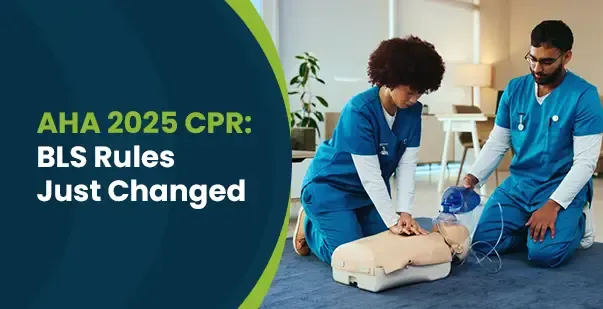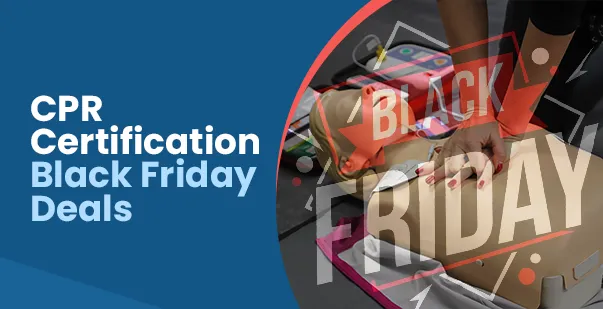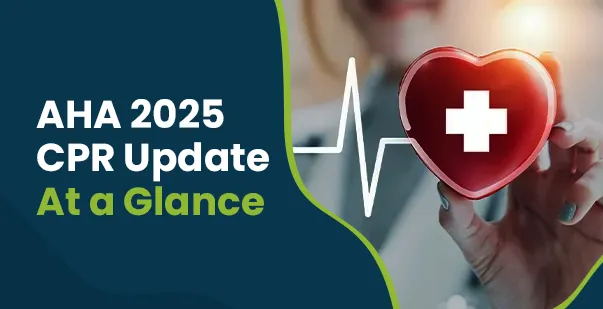Hey there, young sports enthusiasts! Whether you’re an athlete yourself or simply love sports, it’s essential to know about something called Basic Life Support (BLS). BLS is a set of important skills that can help save lives in emergencies.
American HealthCare Academy offers a combo CPR BLS online course which is flexible and is affordable. Being online, this course fits into your schedule smoothly. Our courses are up to date and fits into ECC 2020 guidelines. It’s meant for both medical professionals and non-medical individuals. Enroll today and gain trust by your clients.
In this blog section, we’ll explore the essentials of BLS and why BLS certification for trainers is a must. So, let’s dive in!
Basic Principles of BLS and How They Can Be Applied in Athletic Emergencies
Basic Life Support (BLS) is a collection of simple yet powerful techniques used to help someone who is experiencing a life-threatening situation like sudden cardiac arrest or choking. These techniques are designed to keep a person alive and buy time until professional medical help arrives.
The essential principles of BLS and their applications:
1. Recognizing an Emergency
The first step in BLS is recognizing when someone needs immediate help. This could be if they suddenly collapse, stop breathing, or show signs of choking. If you see someone in distress, it’s important to act quickly and call for help right away.
2. Performing Chest Compressions
Chest compressions are a crucial part of BLS. This involves pushing hard and fast on the center of the person’s chest to pump blood to their vital organs. It’s like being a superhero for their heart! Remember, compressions should be done to the beat of the song “Stayin’ Alive” by the Bee Gees.
3. Providing Rescue Breaths:
Sometimes, a person may also need rescue breaths if they are not breathing or not breathing normally. To give rescue breaths, you’ll need to tilt their head back slightly, pinch their nose, and make a tight seal with your mouth over theirs. Then, give two gentle breaths, watching for their chest to rise.
4. Using an Automated External Defibrillator (AED):
An AED device can shock a person’s heart if it beats incorrectly. They are found in many public places, including sports facilities. If an AED is available, turn it on and follow the voice prompts. It will guide you on when to give chest compressions and when to deliver a shock if needed.
Benefits of BLS Certification for Athletic Trainers
As an athletic trainer, you are often the first responder in sports-related emergencies. Knowing BLS can be a game-changer in saving lives. Whether it’s on the field or in the gym, you can step up and provide immediate help until medical professionals arrive. Your quick actions and BLS skills can make a real difference in someone’s life.
1. Enhanced Emergency Response Skills
BLS certification equips you with advanced knowledge and skills to respond effectively in emergencies. Your training will enable you to provide critical care and potentially save lives.
2. First Responder Readiness
As an athletic trainer, you are often the first person on the scene in sports-related emergencies. BLS certification prepares you to be a competent first responder, ensuring that you can provide immediate aid while waiting for emergency medical services to arrive.
3. Safety of Athletes and Team Members
When you hold a BLS certification, you become a guardian of safety for athletes and team members. Injuries and medical emergencies can occur during practices, competitions, or even in the training room.
4. Compliance with Safety Standards
Many athletic organizations and institutions require BLS certification as a standard requirement for athletic trainers. By obtaining your certification, you ensure that you meet the necessary safety standards set by governing bodies.
5. Professional Growth and Credibility
As you continue to pursue advanced certifications and training, your BLS certification serves as a strong foundation, positioning you as a knowledgeable and capable healthcare professional.
Conclusion
Understanding the essentials of BLS is like having a superpower as an athletic trainer. It equips you with the ability to respond confidently and effectively in life-threatening situations. Remember, always prioritize safety and call for professional help, but your knowledge of BLS can provide critical support until they arrive.









